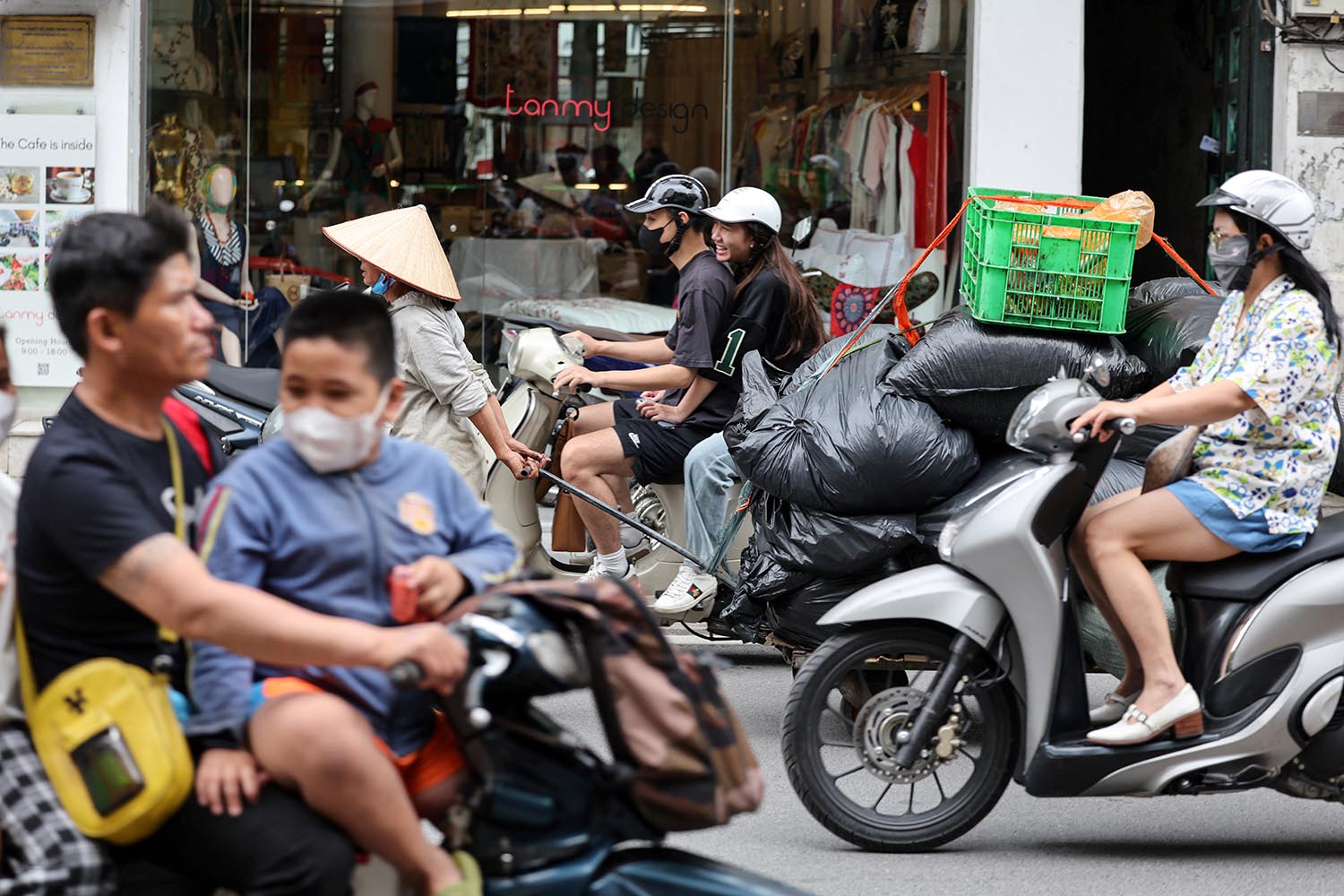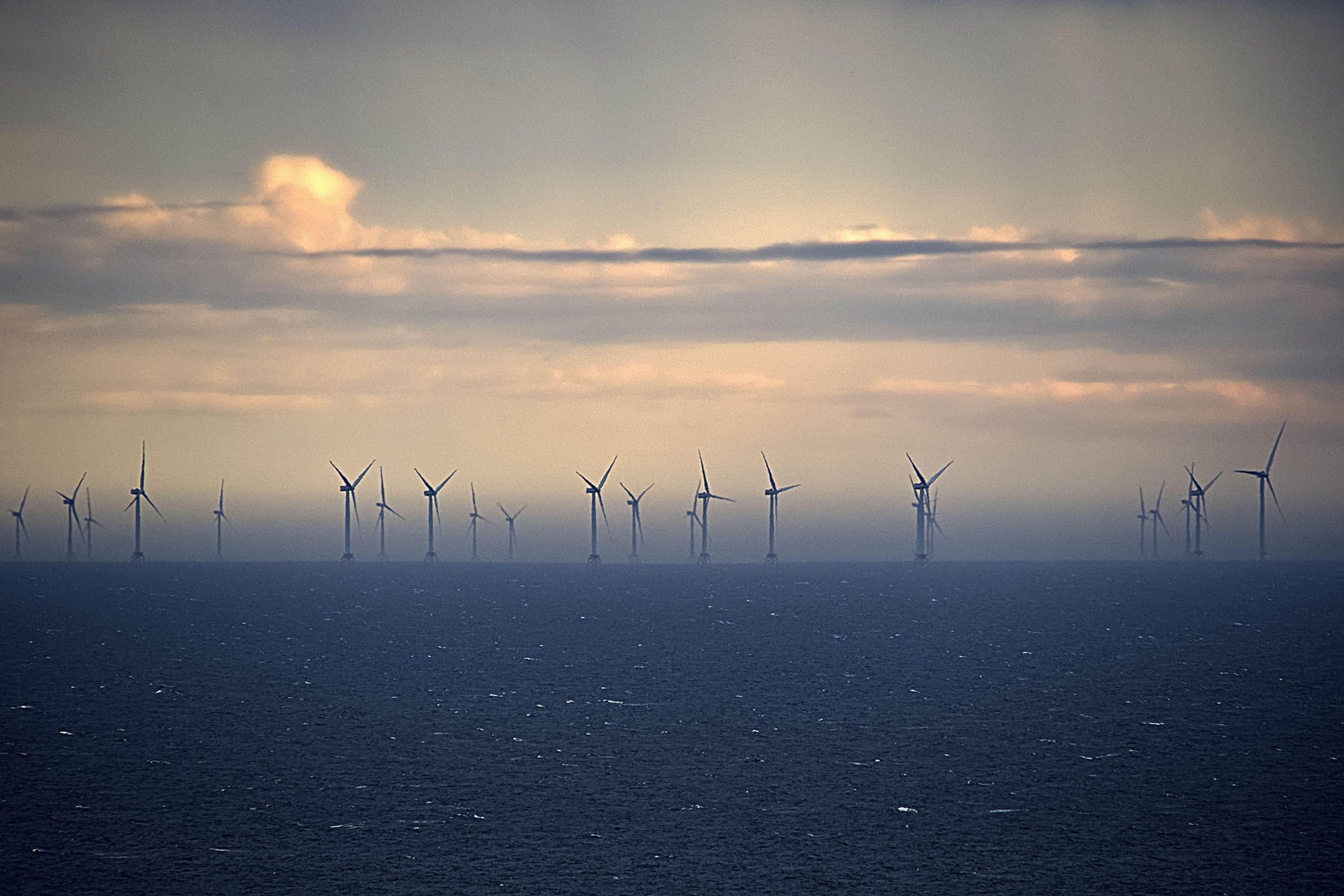As the brutal mid-afternoon heat subsides, the streets of Hanoi come alive with dizzying traffic and the deafening roar of thousands of passing motorbikes. If Amsterdam is known for its bicycles, then Hanoi is known for its motorcycles. The city has nearly 7 million – that’s almost one for each resident.
But its love of the motorbike comes at a cost. Vietnam’s capital has consistently ranked among the world’s most air-polluted cities. Narrow alleys are filled with cooking smoke and motorbike fumes, making it hard to breathe.
That may be about to change. The country’s prime minister, Pham Minh Chinh, last week signed an order to ban all petrol-powered motorbikes from Hanoi’s core inner city – an area about a quarter the size of London’s zone 1. Set to come in next year, it is part of a new, sweeping effort to combat air pollution.
But the decision has provoked a strong, mixed reaction from local residents, some calling the ban a “discrimination against the poor”.
The livelihoods of many people depend on motorcycles, especially a growing force of delivery men and women whose services have become essential to modern urban life.
Nguyen Vu Hoai Nam, a 17-year-old from Thanh Hoa, a city roughly 100 miles south of Hanoi, was given an old scooter by his uncle as an investment in his future. Nam has been working as a motorbike taxi driver and deliverer for almost a year. He says he makes enough to cover rent and food, with less than a million dong (£28) left over to send home every month.
“Now the government says I need to buy an electric motorbike but a half-decent one costs around 30m Vietnamese dong (£850), way out of my budget,” he says.
“I often carry heavy loads such as fruit, meat, sometimes even live chickens and ducks, to the market. Can electric bikes do that?” Nam grins, pointing at a passing old scooter of dubious brand trailing black smoke, overloaded with four people.
Related articles:
Money is an important factor, but there are other concerns, too.
“The motorbike is not just a vehicle but an important part of our life,” says Le Hong Viet, a store employee. Viet’s trusted petrol motorbike has been with him for two decades, carrying his children to school, his wife to work, and the whole family back home to Thai Nguyen, a mountainous region north of Hanoi, to visit his parents during Lunar new year.
Newsletters
Choose the newsletters you want to receive
View more
For information about how The Observer protects your data, read our Privacy Policy
We need strong support for low-income groups, as well as adequate public transport
We need strong support for low-income groups, as well as adequate public transport
Pham Thi Huong Giang
“I brought my wife to the hospital on this motorbike to give birth, her water broke and my daughter was nearly born on it,” he says.
Most major hospitals in Hanoi are in the inner city, and without motorbikes low-income people would find it hard to see their doctors. The area also includes the old city, dense residential zones and offices.
The public transport system is seriously underdeveloped, with just over 2,000 buses and two short metro lines serving the whole 8.5m population of the city.
While the ban can be seen as a clear environment-friendly policy aimed at improving air quality, promoting green vehicles and public transport, it risks being viewed as discrimination against the urban poor, says Pham Thi Huong Giang, a Vietnamese environmental activist.
“We need a transparent legal framework, a clear roadmap and strong support for citizens in the transition, especially low-income groups dependent on motorbikes, as well as adequate public transport alternatives,” she says.
The government has promised to support Hanoi residents to switch to electric motorbikes with money incentives of up to 5m dong (£140) per person per unit. That would still be two-to-three times more expensive than a second-hand petrol motorbike.
Duong Duc Tuan, a senior local official, says the authorities will also set up a charging station system for electric vehicles and improve the public transport network to meet people’s mobility needs.
Like many countries, Vietnam has set an ambitious target of net-zero greenhouse gas emissions by 2050. Phasing out fossil-fuelled vehicles in big cities like Hanoi could be viewed as a step in the right direction.
Still, Hanoi residents are not yet sold on the idea. A recent mini survey undertaken by the VnExpress news website found 58% of respondents saying the ban is “unfeasible”, while only 18% thought it was possible.
Meanwhile, the internet began filling up with memes suggesting people equip themselves with propellers, wings, or magic carpets to get around without bikes.
As he drives off to pick up his wife from the market, Le Hong Viet says he’s not entirely convinced by the official statements. “If they really want to clean up the city, why don’t they ban petrol cars first?”
Photograph by Ludovic Marin/AFP


